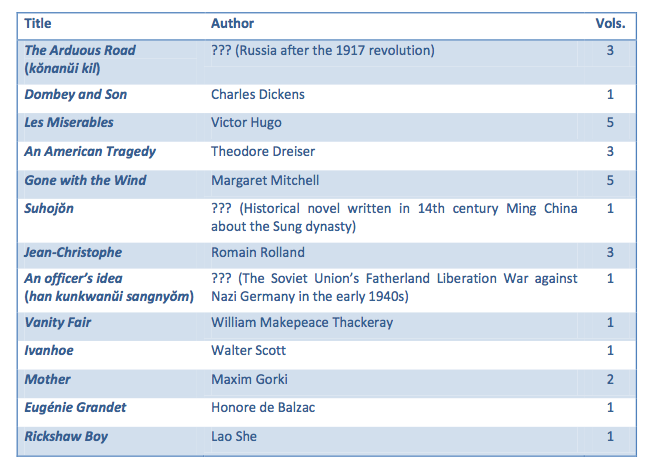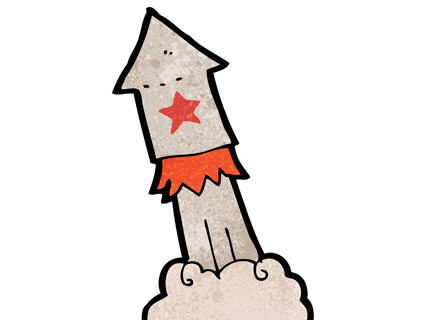North Korea has its own version of the iPad—it’s called the Samjiyon. Internet access is tightly controlled by the human–rights–allergic regime, so the device is merely another conduit for state propaganda. It comes pre-loaded with games, a multi-language dictionary, and an interesting collection of eBooks in the “foreign literature” section. University of Vienna professor Rüdiger Frank gave the world an inside look at this selection of foreign books in a recent review of the Samjiyon for 38 North:

“For most of these works, it seems easy or at least possible to understand why they have been included here,” Frank writes. “They depict either the miserable life under feudalism and capitalism (Balzac, Dickens, and Hugo), the patriotic fight to repel foreign invaders (Ivanhoe) or the revolutionary struggle against reactionary forces.”
As the Washington Post‘s Andrea Peterson pointed out on Monday, Gone with the Wind—Margaret Mitchell’s Pulitzer-winning 1936 novel that was adapted into the beloved film—is one of the most popular foreign titles in the Democratic People’s Republic of Korea. Also, the film, which was a favorite of late dictator Kim Jong Il, is sometimes used in English-language training programs for top North Korean officials. Here’s an excerpt from Associated Press correspondent Tim Sullivan’s 2012 report on reading Gone with the Wind in Pyongyang:
In Gone With the Wind, North Koreans found echoes of their own history and insights into the United States: bloody civil wars fought nearly a century apart; two cities—Atlanta and Pyongyang—reduced to rubble after attacks by U.S. forces; two cultures that still celebrate the way they stood up to the Yankees…Perhaps more than anything, though, North Koreans found what readers everywhere ask of a good novel: an escape and a comfort. And in a country with little in the way of entertainment, a police state that keeps the entire population relentlessly on edge, Mitchell’s well-told (if relentlessly soapy) tale of lost love, mansion life, war and honor became an important refuge.














